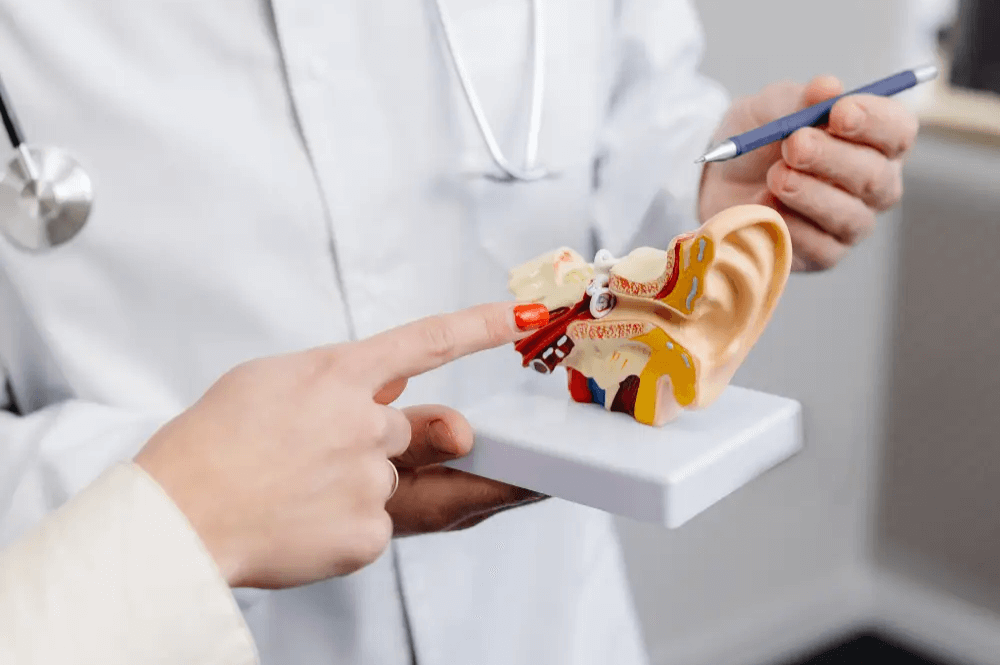Get Directions


Dizziness and Balance Diagnostics
Regain Stability and Confidence with Expert Balance Care
Balance is important for daily tasks such as walking and driving. Issues with dizziness and balance can have a significant impact on general health and quality of life. These challenges frequently result in decreased mobility, raising the risk of falls and other accidents.
At Laurel Highlands Hearing & Balance, we specialize in identifying and treating balance issues, allowing patients to restore stability and confidence. With cutting-edge diagnostic technologies and a sympathetic approach, we provide personalized care to each individual. Patients can maintain their independence and well-being by treating balance issues as early as possible.
What Causes Dizziness and Balance Issues?
Dizziness and balance problems can stem from various underlying causes. Inner ear problems, such as infections or inflammation, are among the most common culprits. Vestibular disorders, including conditions like Ménière's disease and benign paroxysmal positional vertigo (BPPV), directly affect the body’s ability to maintain equilibrium.
Meanwhile, certain medical conditions like low blood pressure, migraines, or neurological disorders can contribute to balance difficulties. The connection between hearing health and balance is also significant, as the inner ear plays a dual role in both functions. Understanding these causes is critical to effective diagnosis and treatment. Recognizing symptoms and seeking timely care can lead to improved outcomes.
Who Should Seek Balance Testing?

Diagnostic Services Offered
What to Expect During Testing
When you visit Laurel Highlands Hearing & Balance, you can expect a welcoming and supportive environment designed to put you at ease. Our compassionate team is dedicated to making your diagnostic process as seamless and stress-free as possible.
The Diagnostic Process
Patients are assured of a swift diagnostic process when they choose our hearing practice. Here’s an explanation of our balance testing diagnostic process:
Initial Consultation to Discuss Symptoms and Medical History
The diagnostic journey begins with an in-depth consultation. During this initial discussion, we’ll ask about your symptoms, such as dizziness, vertigo, or balance issues, and any hearing difficulties you may be experiencing. Your medical history is also an important part of the process, as it helps us identify potential contributing factors like past ear infections, surgeries, or neurological conditions.
We’ll take the time to understand your concerns, ensuring we’re aligned with your specific needs. This is an opportunity for you to share details about your lifestyle and daily activities that could be affected by balance or hearing issues. We gather information to build a comprehensive profile to guide testing and treatment. Our goal is to ensure you feel heard and fully informed throughout the process.
Comfortable, Non-Invasive Testing Procedures
Testing procedures are designed with your comfort in mind. Depending on your symptoms, we may perform several assessments to evaluate your hearing and balance systems. Audiometric testing measures your ability to hear sounds of various pitches and volumes, while tympanometry assesses the function of your middle ear. If balance issues are a concern, vestibular tests like videonystagmography (VNG) testing may be conducted to examine how your inner ear contributes to balance.
These procedures are non-invasive, meaning there’s no need for needles or surgical instruments. Each test is explained in detail beforehand, so you know what to expect and can relax during the process. Our advanced technology ensures accurate results, helping us pinpoint the root cause of your symptoms.
Customized Treatment Plans
We believe every patient deserves a treatment plan tailored to their unique needs. Your test results guide our recommendations, ensuring we address the underlying causes of your hearing or balance concerns with precision and care.
